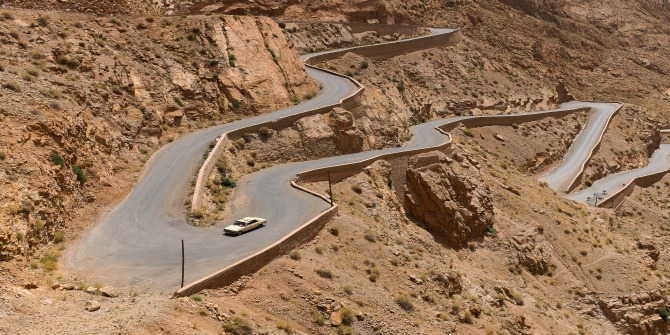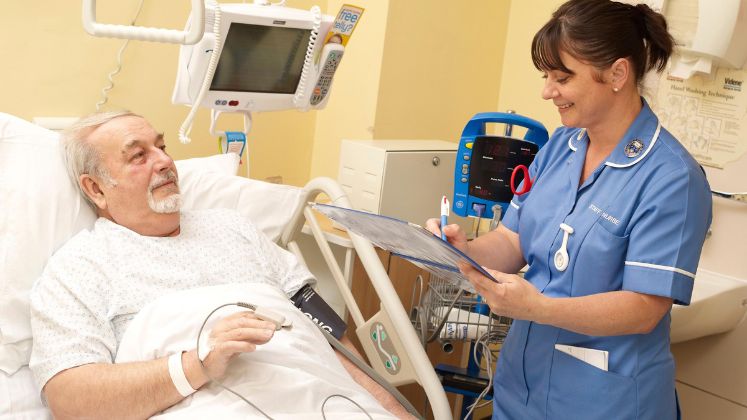 Andrew Copson argues that Anglican Bishops should not have an automatic right to sit in Parliament. Their presence in the House of Lords undermines equality and religious diversity and unjustifiably promotes them as guardians of ethical expertise.
Andrew Copson argues that Anglican Bishops should not have an automatic right to sit in Parliament. Their presence in the House of Lords undermines equality and religious diversity and unjustifiably promotes them as guardians of ethical expertise.
They are a constitutional feature which only Iran has in common with Britain. Seventy one per cent of public respondents to the 2002 consultation on Lords reform wanted them removed, tens of thousands of the public last year emailed their MPs through Power2010 to ask that they be removed, but the government’s latest proposals for Lords reform yet again retains the power of Anglican Bishops to sit in our Parliament as of right. Even the apparently progressive measure to reduce their number to twelve (from 26) is bad news, representing as it does a proportional increase from three per cent to four per cent in a smaller overall chamber.
Why is it, in a society that is increasingly non-religious and increasingly religiously diverse, that our constitutional reformers should be making such outlandish proposals?
Fairness and religious diversity
If we leave aside the argument of tradition, that we should have Bishops because we have had them for a long time and it’s best to leave things as they are – a fatuous argument at a time of reform – the most obvious objection is one of fairness. If Parliament is supposed to represent the people, why should only one denomination of only one religion have a guaranteed twelve seats when other denominations of that religion, other religions and other non-religious philosophies and approaches to life have no such representation? It would only be fair to represent all religions and philosophies. Immediately this is seen to be impossible, not least because we would need an unfeasibly large second chamber to represent all shades of religious and non-religious opinion.
A unique ethical expertise
The case for seating bishops in the House of Lords therefore comes to rely on a claim that these men are uniquely well placed to provide vital expertise on matters of public policy. Recently, this has most often been claimed to be ethical expertise, but in the last few months advocates of bishops have also built their case on the position of the Church of England as our largest NGO – a civil society group with a branch in every community. Both these sources of uniqueness are open to refutation. Are bishops really uniquely qualified on matters ethical – more than philosophy professors or rabbis or doctors or thoughtful professionals of many backgrounds? Are their ethical views representative? Their views on the ethics of assisted dying for the terminally ill or equal rights for gay people or state-funded religious schools are far outside the mainstream. And if it is the case that we should treat the Church as an NGO (doubtful given its entanglement with the state), why then should we consider it unique compared with trade unions or the National Trust or the Women’s Institute? Neither of these claims to uniqueness stack up in reality.
Disestablishment with the Church
A retreat is often made at this point to the idea that the removal of Bishops would constitute disestablishment of the Church of England and so is undesirable. Leaving aside for a moment the question of why disestablishment should be seen as anything other than wholly appropriate, it is in any case quite untrue. In Modernising Parliament: Reforming the House of Lords, produced by the Cabinet Office in January 1999, it was clearly stated: ‘the presence of the Bishops became increasingly associated with the establishment of the Church of England, although in law the two are quite separate’. And in response to those who say that it would be wrong to not have Christians in our Parliament, we can point out that there are plenty of Christians in the House of Commons, which is elected, and in the House of Lords among crossbenchers. To remove privilege is not to create disadvantage.
Bishops in our parliament are not just the harmless and picturesque legacy of medieval days but a present day example of discrimination, religious privilege and undemocratic politics. They have no place in any reformed chamber worthy of the name.
The right of unelected clerics to have an automatic seat in our legislature was addressed by the All Party Parliamentary Humanist Group (APPHG) in a panel debate held at House of Lords on 29 June. Click here for more details and a podcast of the event.
Please read our comments policy before posting.
You may also be interested in the following articles from the OurKingdom blog:
- Lords reform will strengthen Parliament as a whole: an MP’s call to the Commons– Laura Sandys
- Sortition won’t lie down: a blueprint for a truly representative House of Lords –Max Atkinson
_____________________________________________
On Monday, 18 July, the Constitution Society, CentreForum and British Government @ LSE hosted the debate, The future of the House of Lords. The debate brought together MPs, peers and academics to discuss the proposals set out in the Draft Bill and the prospects for reform of the House.
The speakers were:
- Mark Harper MP, Minister for Political and Constitutional Reform, who was in favour of the proposed reforms;
- Professor Patrick Dunleavy, London School of Economics, who was also in favour, but urged the reforms to go further;
- Professor the Rt Revd Lord Harries, who was skeptical of the proposals and advocated a hybrid system;
- Professor Tim Bale, University of Sussex, who was against the proposals.
Click here for more details and to download “The End of the Peer Show?”







Andrew Copson’s comments about the ‘representativeness’ and constitutional appropriateness of Anglican bishops in the House of Lords is an interesting and very old question so he is at the end of a long debate on the subject.
First of all Copson’s assumptions are false, he alleges that British society is ‘increasingly non-religious and increasingly religiously diverse’. This is manifestly false and numerous surveys and reports have been carried out over the decades and more recently showing that the majority, some 80%, have a religious belief, a high percentage of these still considering themselves as nominally Church of England in terms of ‘belonging’., though Roman Catholics still exceed other Christian denominations in matters of religious practice. Muslims are increasingly numerous and have a high level of religious practice and participation. There are of course many other religious denominations, sects, cults and groups who are less numerous. Humanists constitute a very small minority in British society though they have ‘voice’ greater than their numbers due largely to their presence in the universities and State departments, they have become considerably vocal recently due to their assiduous networking, their campaigning around prominent public celebrities, Dawkins, Hawking Attenborough, Geoffrey Robertson et al. However the most salient factor in the secular Humanist rise has been the rise of secular rationalism and scientific positivism, a phenomenon that Charles Taylor calls ‘exclusive humanism’, a closed immanence raging at an openly transcendental religious tradition.
Copson’s view that bishops ‘are not just the harmless and picturesque legacy of medieval days’ is just a gratuitous insult lacking any gravity at all. Furthermore if bishops are just a ‘picturesque legacy’ why is he so afraid of their influence? The answer to that question may very well lie in Copson’s assertion that these bishops
ethical views on ‘assisted dying for the terminally ill or equal rights for gay people or state-funded religious schools’ are ‘far outside the mainstream’. How does Copson know this? Where is his evidence? Furthermore, even if he can provide the evidence for this these views are representative of quite a number of people, especially in the intelligentsia, and certainly among certain intellectuals.
Perhaps the most telling argument against Copson’s demand for the abolition of bishops in the Second Chamber is his view that ‘tradition’ is somehow atavistic or
an antiquated dysfunction in a smoothly calibrated capitalist plutocracy limited by hard reason.
Perhaps the only saving grace in Copson’s argument is his view on disestablishment, a subject which has many advocates in all Christian churches, and which would achieve his objective of removing bishops tout court, but he does not develop thios issue and so one must suspect that he knows little about it.
Finally Western democracies have traditionally constitutionalised the State around a separation of powers and a separation of the sacred (religion) and the secular (the polis). Until very recently, perhaps the last 10 years, this separation has worked quite well as long as religion didn’t unduly interfere in the machinations of the State and sought simply to influence policy. However the recent expansion of the State and of a Corporate ideology dismantling all barriers of culture, tradition, etc. and pursuing a tyrannical ‘efficiency’ strategy which involves destroying all that isn’t productive, including weak, sick, mentally ill and incarcerated persons, has in fact deepened a religious resistance that was for centuries, since the Reformation, largely dormant. Copson is likely to find plenty of religion if he continues writing his anti-religious diatribes.
It is worrying to consider whether such blatant privilege and discrimination is the result of a unique blind spot, or is a symptomatic of a larger problem in politics.
I just wanted to say I couldn’t agree more. I would go so far as to argue that any representative of a religious institution – founded as they are on archaic principles drawn from the fragmented musings of mostly illiterate desert-dwellings – has no place in a progressive and forward-thinking society.
“Hear, hear!”